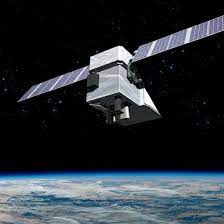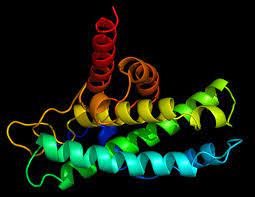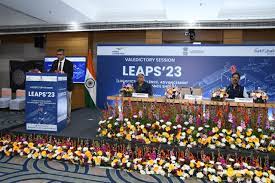Today’s Current Affairs: 6th Mar 2024 for UPSC IAS exams, State PSC exams, SSC CGL, State SSC, RRB, Railways, Banking Exam & IBPS, etc
Table of Contents
Naval Commanders Conference 2024:

The first edition of the Naval Commanders’ Conference of 2024 commenced on March 5, 2024, with a powerful demonstration of the Indian Navy’s maritime capabilities.
- The three-day event began with Raksha Mantri Shri Rajnath Singh embarking at sea to witness the Navy’s ability to conduct ‘twin-carrier operations’, showcasing the growing strength of India’s sea-based air power in maintaining maritime superiority.
- The ceremony witnessed the combat prowess of aircraft carriers INS Vikrant and INS Vikramaditya.
- During the inaugural session, Shri Rajnath Singh addressed the Naval Commanders and commended the Indian Navy for its increasing multi-dimensional capabilities in the Indian Ocean region.
- He appreciated the Navy’s efforts in working towards peace and prosperity across the Indo-Pacific region, in line with the vision of Security And Growth for All in the Region (SAGAR).
- The Naval Commanders’ Conference, held in a hybrid format this year, serves as a platform for Naval Commanders to deliberate on strategic, operational, and administrative matters concerning maritime security.
National Horticulture Fair 2024:

The Indian Institute of Horticulture Research (IIHR) is hosting a three-day National Horticulture Fair at its Hessarghatta premises on the outskirts of Bengaluru from March 5 to 7, 2024.
- The theme of the fair, “Nextgen technology-led horticulture for sustainable development,” highlights the integration of cutting-edge technologies in horticultural practices to promote sustainability and boost farmers’ income.
- The National Horticulture Fair 2024 is being organized by ICAR-IIHR in collaboration with the Society for Promotion of Horticulture (SPH), BESST-HORT (a Technology Business Incubator ICAR-IIHR), ICAR-ATARI Bengaluru, and leading development departments serving for the cause and promotion of horticulture and allied sectors.
Scheme For Internally Displaced Persons:

The Election Commission of India (ECI) has introduced a scheme allowing internally displaced persons (IDPs) of Manipur to vote at relief camps.
- Following ethnic violence in May 2023, over 60,000 people were displaced and housed in relief camps, with an additional 9,000 in Mizoram.
- According to the Guiding Principles on Internal Displacement, internally displaced persons (also known as “IDPs“) are “persons or groups of persons who have been forced or obliged to flee or to leave their homes or places of habitual residence, in particular as a result of or in order to avoid the effects of armed conflict, situations of generalized violence, violations of human rights or natural or human-made disasters, and who have not crossed an internationally recognized border.”
e-Kisan Upaj Nidhi Platform:

The Union Minister for Consumer Affairs, Food & Public Distribution, Commerce and Industry and Textiles launched ‘e-Kisan Upaj Nidhi’ (Digital Gateway).
- e-Kisan Upaj Nidhi platform is a digital gateway of Warehousing Development and Regulatory Authority (WDRA).
- It is the initiative with its simplified digital process can ease the procedure of farmers’ storage at any registered WDRA warehouse for a period of 6 months at 7% interest per annum.
- This digital intervention is poised to mitigate distress sales by providing farmers with viable post-harvest storage options.
- Warehousing Development and Regulatory Authority (WDRA) was established under the Warehousing (Development and Regulation) Act, 2007 and it consists of one Chairperson and two full time Members.
- Mission of WDRA is to establish a negotiable warehouse receipt system in the country.
- It will make warehouse receipts a prime tool of trade and facilitate finance against it, enable banks to improve the quality of their lending portfolio
- This will help foster scientific warehousing of goods, increase liquidity in rural areas, improve supply chains, enhance grading and quality of goods and there by ensure higher returns to depositors.
MethaneSAT:

The MethaneSAT satellite was launched aboard a SpaceX Falcon9 rocket from California.
- MethaneSAT will track and measure methane emissions at a global scale.
- It will provide more details and have a much wider field of view than any of its predecessors.
- The entity behind MethaneSAT is the Environmental Defense Fund (EDF) — a US-based nonprofit environmental advocacy group.
- It is developed in collaboration with Harvard University, the Smithsonian Astrophysical Observatory, and the New Zealand Space Agency.
- It will orbit the Earth 15 times a day, monitoring the oil and gas sector.
- It will create a large amount of data, which will tell “how much methane is coming from where, who’s responsible, and are those emissions going up or down over time”,
- The data collected by this will be made public for free in near real-time.
- This will allow stakeholders and regulators to take action to reduce methane emissions.
RAD51 Protein : Preventing DNA Re-Replication

Researchers recently identified the RAD51 protein as a key player in preventing DNA re-replication.
- RAD51 recombinase (RAD51) is a gene that encodes a protein that functions in homologous recombination and DNA repair.
- RAD51 has the function of finding and invading homologous DNA sequences to enable accurate and timely DNA repair.
- The RAD51 protein binds to the DNA at the site of a break and encases it in a protein sheath, which is an essential first step in the repair process.
- Breaks in DNA can be caused by natural and medical radiation or other environmental exposures, and also occur when chromosomes exchange genetic material in preparation for cell division.
- In the nucleus of many types of normal cells, the RAD51 protein interacts with many other proteins, including BRCA1 and BRCA2, to fix damaged DNA.
- The BRCA2 protein regulates the activity of the RAD51 protein by transporting it to sites of DNA damage in the nucleus.
- The interaction between the BRCA1 protein and the RAD51 protein is less clear, although research suggests that BRCA1 may also activate RAD51 in response to DNA damage.
- By helping repair DNA, these three proteins play a role in maintaining the stability of a cell’s genetic information.
Logistics Excellence, Advancement, And Performance Shield Initiative:

The Department for Promotion of Industry and Internal Trade (DPIIT), Ministry of Commerce and Industry organised a LEAPS Valedictory Session recently.
- LEAPS (Logistics Excellence, Advancement, and Performance Shield) Initiative is a flagship initiative by the logistics division of DPIIT, Ministry of Commerce and Industry, designed to acknowledge and celebrate the best practices and innovations within the logistics industry.
- It would celebrate the demonstrated leadership of the logistics sector in transforming the Indian logistics industry and realizing the combined vision of the National Logistics Policy 2022 and PM GatiShakti.
- The National Logistics Policy was introduced to create a single-window e-logistics market, focusing on the need for skill development, economic growth, and competitiveness in the logistics sector.
- It aims to reduce logistics costs, improve India’s ranking in the Logistics Performance Index, and establish a data-driven decision support mechanism.
- The PM Gati Shakti Programme aims to understand current gaps in logistics connectivity and facilitate the development of logistics infrastructure (creating connectivity between roadways, rail transport, waterways, and air transport) so as to reduce logistics costs. The programme has an estimated cost of ₹100 trillion.
- LEAPS will create a new benchmark globally by not only recognizing players in the logistics sector, but also the MSMEs, Startups and logistics sector enablers.
New Holistic Progress Card:

The National Council for Educational and Research Training (NCERT) is introducing a new ‘holistic progress card’ (HPC).
- HPC, developed by Performance Assessment, Review, and Analysis of Knowledge for Holistic Development (PARAKH), a standard-setting body under the NCERT, for the foundational stage (Classes 1 and 2), preparatory stage (Classes 3 to 5), and middle stage (Classes 6 to 8), as per suggestions by the National Education Policy (NEP) 2020, marks a paradigm shift in assessing students’ overall progress.
- HPC incorporates feedback from parents, classmates, and even self-evaluation by students.
- The approach aims to provide a comprehensive view of students’ academic performance, cognitive abilities, socio-emotional skills and creativity during class activities.
- HPC aligns with the National Curriculum Framework for School Education (NCFSE) to prioritise a learner-centric evaluation.
- HPC, will no longer depend on marks or grades to evaluate a student’s academic performance. Instead, it will rely on a 360-degree evaluation.
- Under the HPC model, the students will be regularly assessed through class activities where they are not just passive learners but active agents.
- Teachers, thus, will be able to register the strengths of a student, such as their ability to “collaborate”, “follow instructions”, show “creativity” or “empathy”, etc.
- A key feature of the HPC is that students will have a say too, evaluating their own as well as their classmates’ performance.




